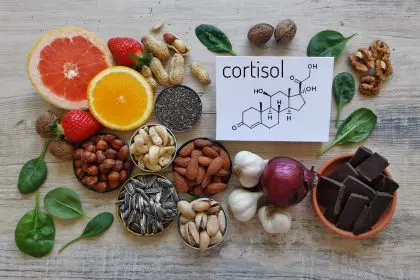That unexplained exhaustion or sudden change in your body might not be just stress or aging. Medical experts are seeing more men experiencing testosterone deficiency, often without realizing what’s really going on. While this crucial hormone naturally decreases with age, certain signs indicate when it’s time to pay attention and seek help.
The hormone that powers more than you think
Testosterone isn’t just about muscle building or sex drive. This powerful hormone influences everything from your mood and energy levels to how your body stores fat and maintains bone strength. When levels drop too low, the effects can ripple through virtually every aspect of your life.
Sign 1: The mysterious energy crash
The first signal often shows up in your energy levels, but not in the way you might expect. Unlike the typical afternoon slump that a cup of coffee can fix, testosterone-related fatigue feels different. Men describe it as a profound tiredness that persists even after a full night’s sleep. Simple tasks start feeling unusually demanding, and your usual workout routine might suddenly seem overwhelming.
Sign 2: The mood shift no one talks about
Changes in mood often get brushed off as stress or work pressure, but they could be telling you something about your hormone levels. Men with low testosterone frequently report feeling irritable or down without any clear reason. These mood changes can be subtle at first – perhaps you’re not finding joy in your usual activities or feeling more anxious than normal.
Sign 3: The physical changes you can’t exercise away
Even if you’re maintaining your regular workout routine, you might notice your body changing in ways that don’t make sense. Low testosterone can lead to increased body fat, particularly around the midsection, while simultaneously making it harder to maintain muscle mass. This frustrating combination often persists despite diet and exercise efforts.
Sign 4: The bedroom signal
While it might be uncomfortable to discuss, changes in sexual function often serve as an early warning sign of low testosterone. This isn’t just about sex drive – the hormone plays a complex role in everything from maintaining erections to generating sexual interest. Many men notice a gradual decline in their sexual responsiveness before other symptoms appear.
Sign 5: The cognitive connection
Brain fog and difficulty concentrating might seem unrelated to testosterone, but this hormone significantly impacts cognitive function. Men with low levels often report trouble focusing, memory issues, and a general sense of mental cloudiness. These changes can affect work performance and daily tasks in subtle but important ways.
Why these signs often get missed
Many men attribute these symptoms to aging, stress, or lifestyle factors, leading to delayed diagnosis. The gradual nature of testosterone decline can make it particularly tricky to identify. Changes often happen so slowly that they become the new normal before anyone realizes something’s wrong.
The blood sugar connection
Recent research has uncovered interesting links between testosterone levels and metabolic health. Low testosterone can affect how your body processes sugar, potentially leading to increased diabetes risk. This connection helps explain why some men experience unexplained weight gain or difficulty losing weight.
Sleep’s secret role
Poor sleep and low testosterone create a troublesome cycle. Low levels can disrupt sleep patterns, while poor sleep can further reduce testosterone production. Breaking this cycle often requires addressing both issues simultaneously.
The inflammation factor
Chronic inflammation in the body can both contribute to and result from low testosterone levels. This connection explains why men with certain inflammatory conditions might be more susceptible to testosterone deficiency.
The stress spiral
Chronic stress affects hormone production throughout the body, including testosterone. Understanding this relationship helps explain why periods of prolonged stress might trigger or worsen symptoms of low testosterone.
When age isn’t the whole story
While testosterone naturally decreases with age, significant drops aren’t inevitable or untreatable. Modern medicine offers various approaches to managing testosterone levels, from lifestyle modifications to medical interventions when necessary.
The exercise equation
Physical activity plays a crucial role in maintaining healthy testosterone levels, but not all exercise is equally effective. Certain types of workouts can actually help boost natural production of this important hormone.
The nutrition connection
Diet significantly impacts hormone levels, including testosterone. Specific nutrients and eating patterns can support healthy testosterone production, while others might inadvertently lower it.
The weight connection
Body weight and testosterone levels share a complex relationship. Excess body fat can convert testosterone to estrogen, creating a challenging cycle that requires a comprehensive approach to break.
Time to take action
If you recognize several of these signs, speaking with a healthcare provider marks an important first step. A simple blood test can measure testosterone levels, but timing matters – levels naturally fluctuate throughout the day, typically peaking in the morning.
The road to recovery
Treating low testosterone often involves a combination of approaches. While testosterone replacement therapy exists as an option, doctors frequently start with lifestyle modifications that can naturally support hormone production.
Remember, experiencing these symptoms doesn’t automatically mean you have low testosterone, but they do warrant attention and possibly medical evaluation. Early intervention often leads to better outcomes, allowing you to address any issues before they significantly impact your quality of life.













